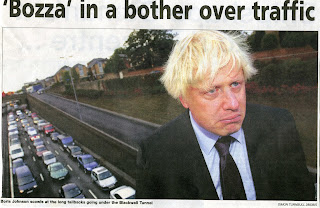Yesterday the BBC Parliament channel re-ran the coverage of the 1997 general election campaign. I am not enough of an anorak to watch all of it, which would have been a marathon. However, I watched a considerable amount and the cat got some extra lap time.
There was such great hope and so many comparisons to 1945. Although the positive achievements of New Labour are often under estimated, and always overshadowed by the Iraq war, most analysts would argue that the 1945 Labour Government made more of a difference. Having said that, Chipping Norton historians like Dominic Sandbrook argue that we underestimate the extent to which the foundations of the welfare state were laid in the inter-war period.
I think that a very perceptive comment was made by David Dimbleby on the lines of it's one thing to win an election, another to govern. The civil service would have to be bludgeoned into submission and Tony Blair always complained of his difficulties with them, although in part that was an alibi. However, as Dimbleby noted, there is a world of difference between deciding what to say and deciding what to do.
It took a long time for results to come through, but local election votes had to be counted as well. Conservative spokesmen (they were all men) were stonewalling, no doubt under instructions from Central Office on a line to take, saying that exit polls had a bad record and only the real votes counted. Nevertheless, Paxo asked Michael Portillo 'Are you ready to drink hemlock yet?'
In many ways, it was the quirky events that caught my attention. I do remember how acerbic the declaration at Putney was. There were a number of fringe candidates, one of whom got seven votes, while the 'Sportsman Alliance. Anyone But Mellor' got into double figures.
Unsubstantiated allegations had been made that Mellor had performed the rites of Venus with a young lady while wearing a Chelsea shirt. However, both the successful Labour candidate and Sir 'Jams' Goldsmith were on their third marriages. Moreover, all the three leading candidates were millionaires.
'Jams', who didn't do any better than Referendum candidates elsewhere, interrupted Mellor's speech with hand clapping and shouts of 'Out! Out! Out!' Mellor responded in his television interview by urging Jams to return to Mexico at the earliest opportunity and said 'Up your hacienda, Jimmy.'
The event of the night was the defeat of Michael Denzil Xavier Portillo which arguably changed the future of the Conservative Party and British politics. Portillo was grinning broadly in his post defeat interview, no doubt contemplating the British railway journeys which would transform him from a right-wing Mr Nasty into a national treasure. However, he soon got into a spat with Paxman.
It was interesting to hear Kensington & Chelsea described as 'the safest Conservative seat in the country' but with a majority of only 9,000.
Barbara Follett was then a key Labour figure with a great future supposedly in front of her. Perhaps it was a sign that her and her husband could not open the champagne, de rigeur for champagne socialists, on election night. She held minor government posts and then got caught up in the election expenses scandal.
Ben Bradshaw, standing in Exeter, was rather oddly described (by the standards of twenty years later) as the first 'openly homosexual candidate'. He defeated his Conservative opponent who stood on a strident anti-gay and family values platform.
The backcloth to the declaration at Torbay was declared to be like a scene from South Pacific by Dimbleby, but before the Liberal Democrat win by 12 votes could be announced we switched to Harrogate. A grim faced Norman Lamont had been defeated after parachuting into the constituency by the Liberal Democrat leader of the local council. I met someone once who was a nurse in the hospital in Lerwick where his father was consultant and she said that he was a 'nasty little boy'.
Then Martin Bell won in his white suit in Hatton, a reluctant victor. His daughter Melissa, a Warwick politics student, was in the background. The subsequent career of Neil Hamilton shows there can be life after political death. He is now a member of the Welsh National Assembly for UKIP. Many of the victors that night have disappeared into obscurity.
Finally, a word about the varying style of the returning officers. One result was read out by the High Sheriff who would not give the party labels. Some insisted on repeating the numbers in the style of 'Miss Moneypenny, Transvestite Party, ninety four, 94.' The really threatening one was a fierce looking but relatively young bearded returning office in Galloway. There was some noise in the hall, mild by the standards of Putney, and he asked an aide 'to attend to' the offender.







